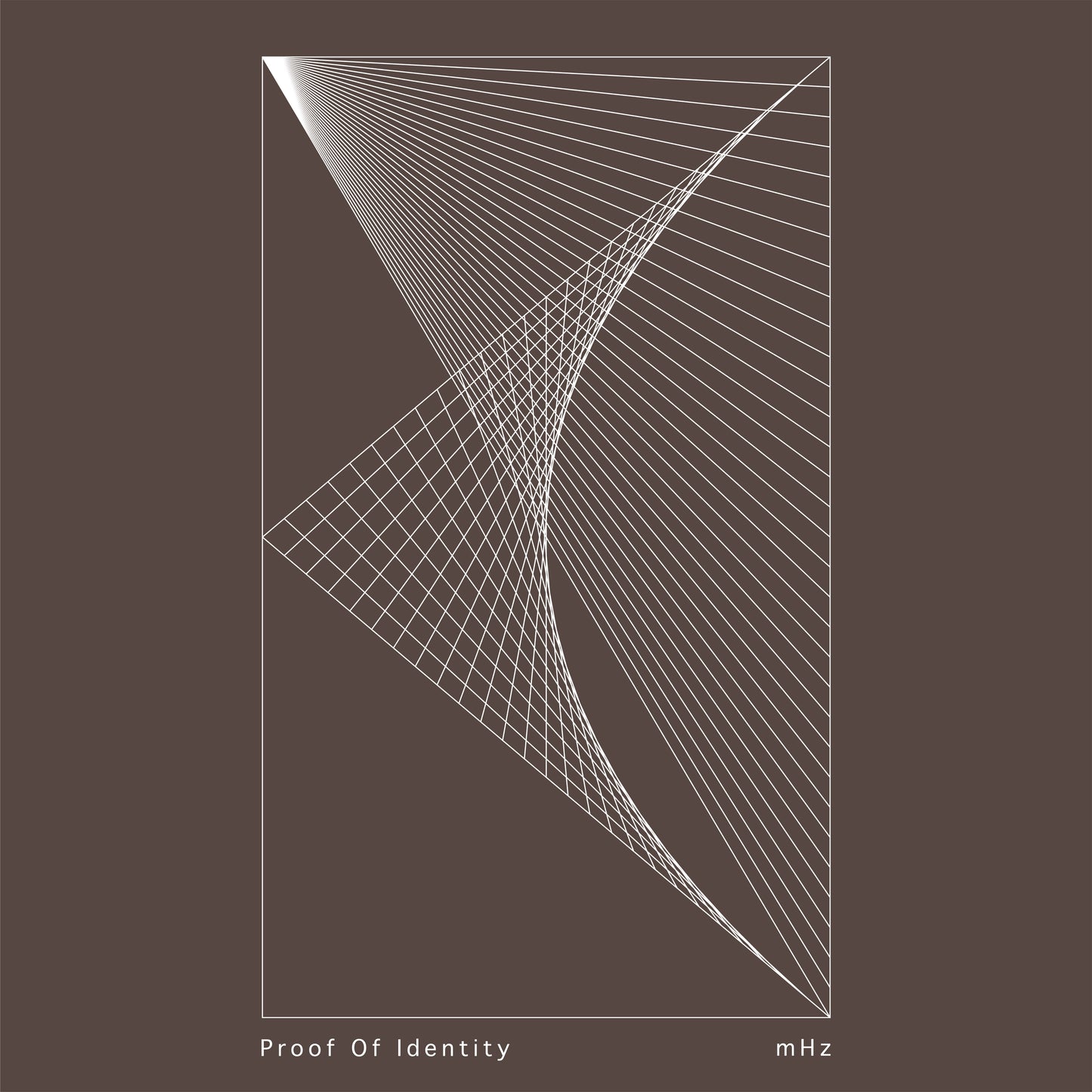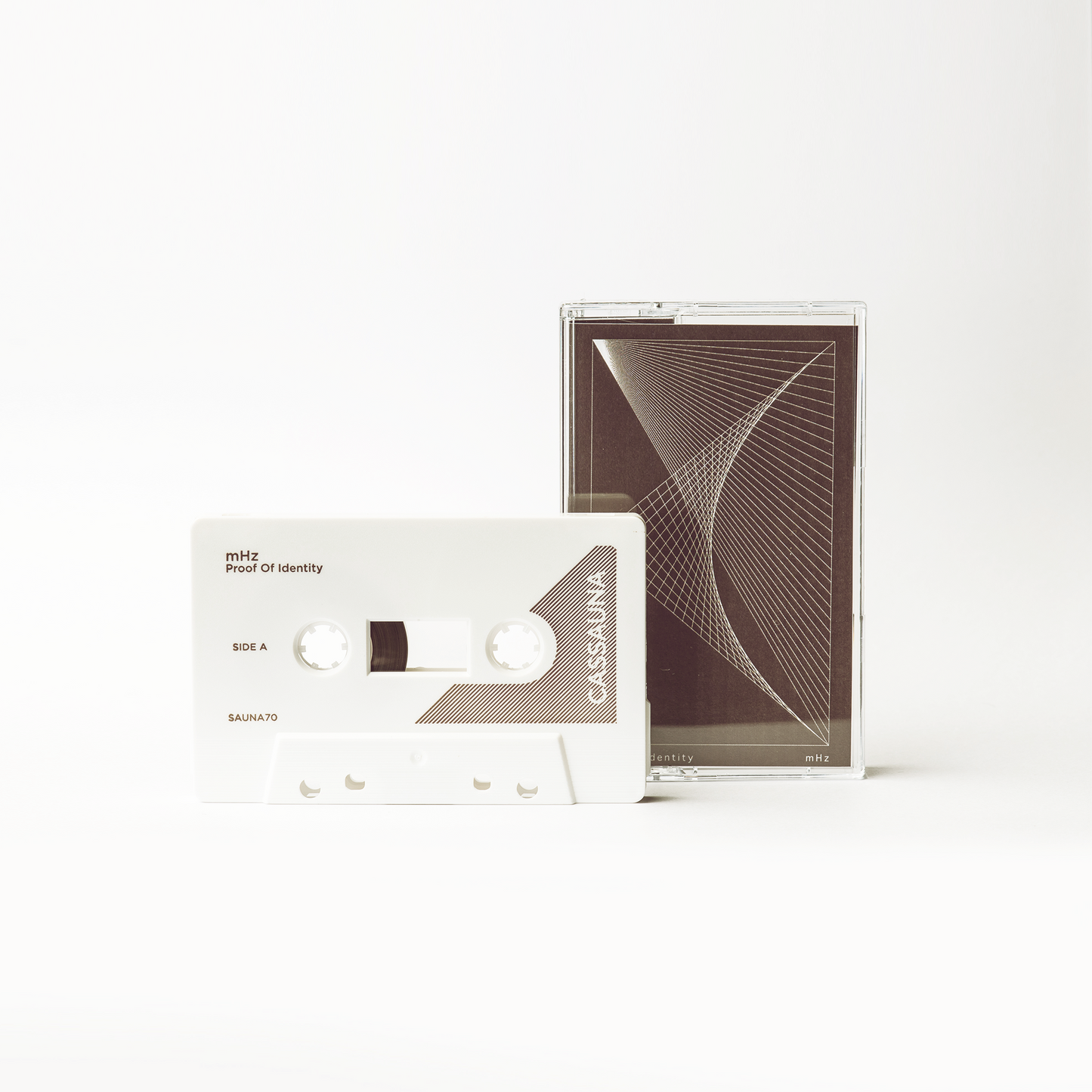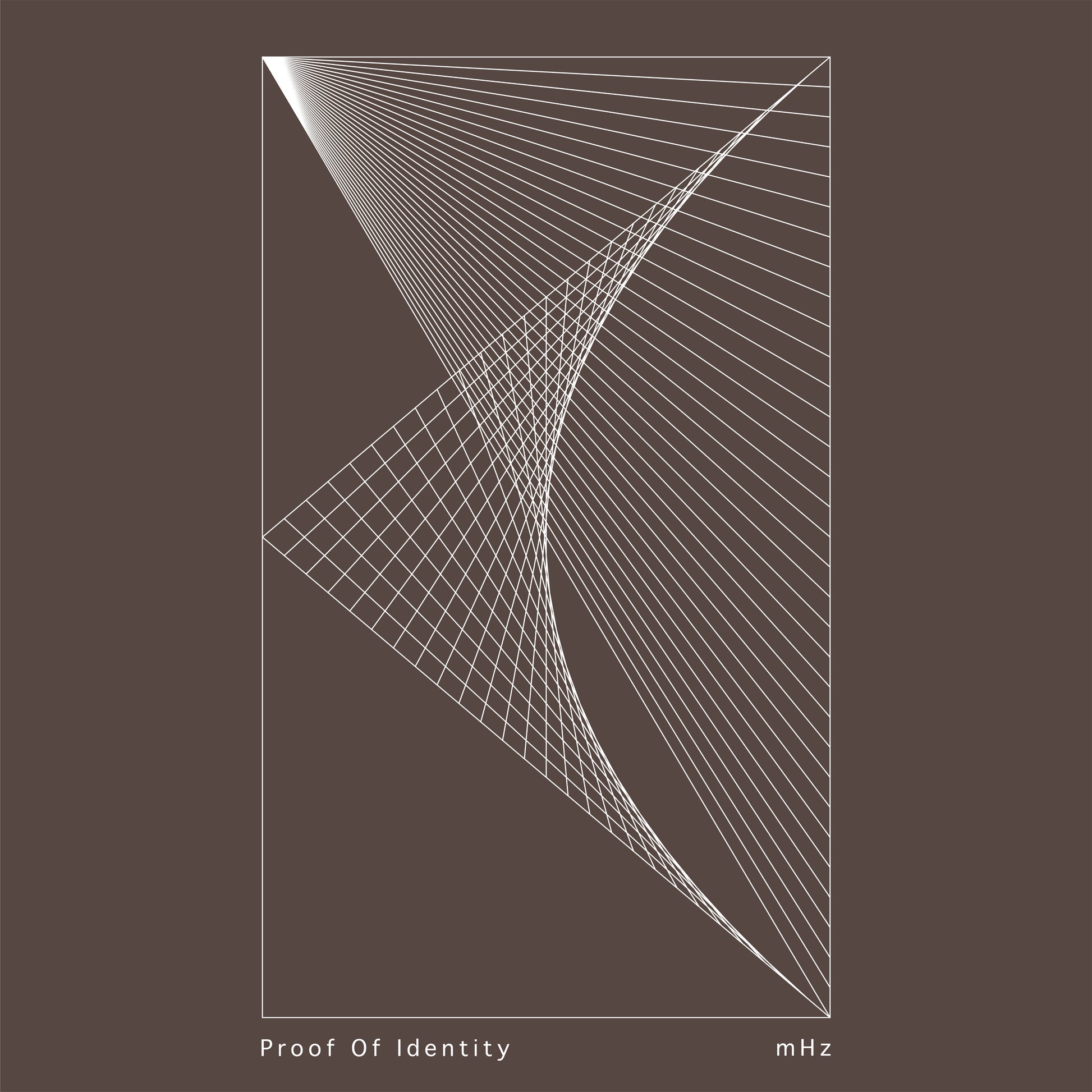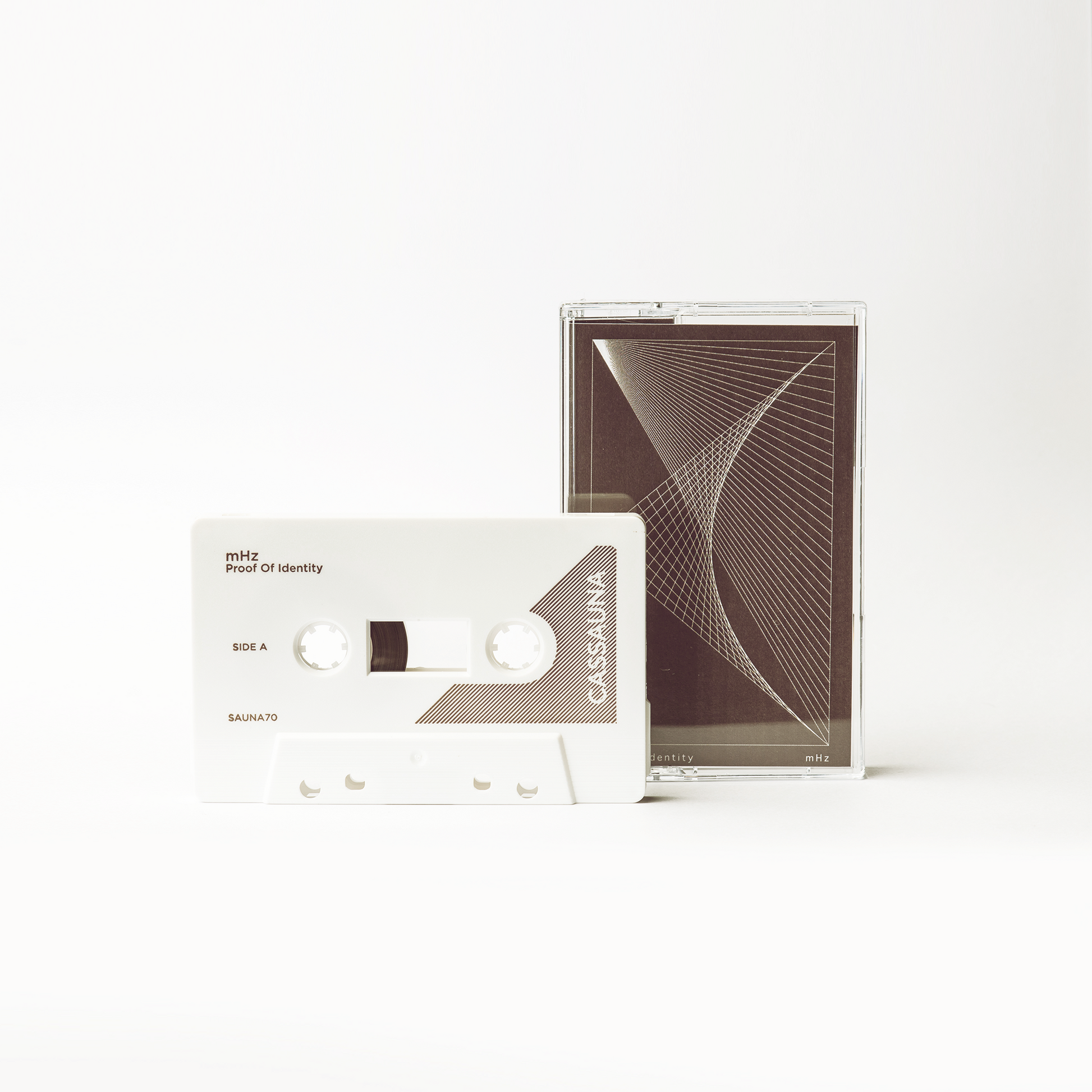1
/
of
2
mHz - Proof Of Identity - Tape
mHz - Proof Of Identity - Tape
Regular price
$12.00 USD
Regular price
Sale price
$12.00 USD
Unit price
/
per
Couldn't load pickup availability
Share
release date: May 5, 2023
Mo H. Zareei (mHz) returns to Imprec/Cassauna with Proof Of Identity, an album of pulsating, pattern-based electronic pieces that evolve in ways reminiscent of Steve Reich's early work or Philip Glass' Music In 12 Parts. With Proof Of Identity, Zareei confronts issues surrounding identity and authorship in composition specifically when created by non-Western musicians. He simultaneously tackles orientalism and the normative take on identity politics.
Artist's Statement:
More than a decade ago, I made a piece of beat-based electronic music and titled it "Middle Eastern IDM" for a course assignment. After listening to it in class, my professor asked what was Middle Eastern about it. It was only a year after I had left Iran to study in the US, and I didn't know that I could say "I am. I made the piece". So I went back and superimposed a sample of Egyptian protest chants on top of the piece, to make it "sufficiently Middle Eastern".
What prejudiced conservatism and performative liberalism share is gatekeeping practices that box one in a preconceived state of otherness. While the former overtly regards that otherness as inferior, the latter exoticises it through patronising paternalism. To me, it is especially troubling when exclusionary practices are driven by some form of overzealous "diversity and inclusion" agenda. If you don't fit the diversity box they've made for you, too bad. It's your fault for being "insufficiently diverse". "Poor thing, you've been colonised!", they tell you, as they claim ownership over a collection of frequencies and rhythms. When you look at who gets to decide if something's indigenous enough, you see how decolonisation itself has been colonised.
When you listen to this piece, I'm very happy for you to keep in mind that it was made by someone from Iran. But I might need to clarify that this piece has nothing to do with sufism and the whirling dervishes, the interweaving patterns of the Persian carpet, the poetry of Rumi, or Islamic architecture. And if you hear those moments of "non-western" sonorities, that is because I have constructed this piece from samples of a piece of Iranian traditional music – an overplayed piece that was all over TV and radio while I was growing up Iran, one that I never found particularly inspiring or interesting. Here, I have tried to make it more interesting by completely taking it apart and reconstructing it through my personal compositional techniques, aesthetic preferences, and a wide range of musical influences. So in short, while this piece might not sound like your archetypical Iranian music, I assure you that it is Iranian enough.
_______________________bio
Mo H. Zareei aka mHz is an Iranian electronic musician, sound artist, and researcher, based in Wellington, New Zealand. Using custom-built software and hardware, his experiments with sound cover a wide range from electronic compositions to kinetic sound-sculptures and audiovisual installations. Regardless of the medium, Zareei’s work aims to highlight the beauty in the basics of sound and light production and reductionist audiovisual elements that draw inspiration from physical and architectural principles. Over the course of his PhD, he developed a portfolio of works focused on the intersections of sound art and Brutalism.
Zareei has presented his work at international venues and festivals such as ISEA (Montreal/Vancouver/Dubai), SETxCTM festival (Tehran), NIME (London), Modern Body Festival (The Hague), ICAD (New York), and NZ Festival (Wellington), to name a few. His installation “Rasping Music" was the recipient of the 1st prize for Sound Art at the last iteration of the international Sonic Arts Award in 2015 (Italy).
Under the moniker mHz, Zareei’s electronic music projects have been published via LINE (US), Important Records (US), leerraum (CH), and Kasuga Records (DE).
View full details
Mo H. Zareei (mHz) returns to Imprec/Cassauna with Proof Of Identity, an album of pulsating, pattern-based electronic pieces that evolve in ways reminiscent of Steve Reich's early work or Philip Glass' Music In 12 Parts. With Proof Of Identity, Zareei confronts issues surrounding identity and authorship in composition specifically when created by non-Western musicians. He simultaneously tackles orientalism and the normative take on identity politics.
Artist's Statement:
More than a decade ago, I made a piece of beat-based electronic music and titled it "Middle Eastern IDM" for a course assignment. After listening to it in class, my professor asked what was Middle Eastern about it. It was only a year after I had left Iran to study in the US, and I didn't know that I could say "I am. I made the piece". So I went back and superimposed a sample of Egyptian protest chants on top of the piece, to make it "sufficiently Middle Eastern".
What prejudiced conservatism and performative liberalism share is gatekeeping practices that box one in a preconceived state of otherness. While the former overtly regards that otherness as inferior, the latter exoticises it through patronising paternalism. To me, it is especially troubling when exclusionary practices are driven by some form of overzealous "diversity and inclusion" agenda. If you don't fit the diversity box they've made for you, too bad. It's your fault for being "insufficiently diverse". "Poor thing, you've been colonised!", they tell you, as they claim ownership over a collection of frequencies and rhythms. When you look at who gets to decide if something's indigenous enough, you see how decolonisation itself has been colonised.
When you listen to this piece, I'm very happy for you to keep in mind that it was made by someone from Iran. But I might need to clarify that this piece has nothing to do with sufism and the whirling dervishes, the interweaving patterns of the Persian carpet, the poetry of Rumi, or Islamic architecture. And if you hear those moments of "non-western" sonorities, that is because I have constructed this piece from samples of a piece of Iranian traditional music – an overplayed piece that was all over TV and radio while I was growing up Iran, one that I never found particularly inspiring or interesting. Here, I have tried to make it more interesting by completely taking it apart and reconstructing it through my personal compositional techniques, aesthetic preferences, and a wide range of musical influences. So in short, while this piece might not sound like your archetypical Iranian music, I assure you that it is Iranian enough.
_______________________bio
Mo H. Zareei aka mHz is an Iranian electronic musician, sound artist, and researcher, based in Wellington, New Zealand. Using custom-built software and hardware, his experiments with sound cover a wide range from electronic compositions to kinetic sound-sculptures and audiovisual installations. Regardless of the medium, Zareei’s work aims to highlight the beauty in the basics of sound and light production and reductionist audiovisual elements that draw inspiration from physical and architectural principles. Over the course of his PhD, he developed a portfolio of works focused on the intersections of sound art and Brutalism.
Zareei has presented his work at international venues and festivals such as ISEA (Montreal/Vancouver/Dubai), SETxCTM festival (Tehran), NIME (London), Modern Body Festival (The Hague), ICAD (New York), and NZ Festival (Wellington), to name a few. His installation “Rasping Music" was the recipient of the 1st prize for Sound Art at the last iteration of the international Sonic Arts Award in 2015 (Italy).
Under the moniker mHz, Zareei’s electronic music projects have been published via LINE (US), Important Records (US), leerraum (CH), and Kasuga Records (DE).



